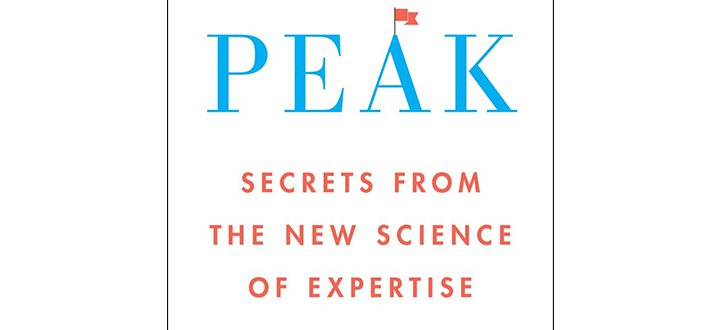As you may know, I’m a huge book reader, and I recently finished Peak: Secrets from The New Science of Expertise, by Anders Ericsson and Robert Pool.
The book seeks to answer the question, what drives peak performance? How does one become a world class (e.g. best in the world) athlete, musician, scientist, etc.
There’s a common concept out there that talks about becoming an expert – it’s the 10,000 hours principle. In short, it says that if you practice something for 10,000 hours, you’ll become an expert. It seems logical, no? But who wants to spend that amount of hours – especially on pursuits like personal finance, when there are far more interesting ways to spend your time.
Thankfully, Peak breaks down why you don’t necessarily need to spend 10,000 hours in practicing. But, let’s dive in to that for a second.
The Bad News
The bad news is that the book provides some statistically valid research that shows that if we practice something as a child, we will develop the emotional and physical wiring to be pre-disposed to be great at that particular thing. This applies to very physical pursuits – e.g. if you start practicing tennis at a young age, and never stop, your body will literally be optimized for tennis moreso than someone who didn’t do that. However, the authors are quick to point out that the body and brain are quick to make changes at any age – so all is not lost.
I want to point out that this also applies to emotional principles, like money mindset. You can develop a good relationship with money as a child, and if you do, you’ll likely continue to have a better relationship with money as an adult.
The bad news is that many of us were not taught solid financial principles as children – in fact, many of us haven’t learned good money advice until we were already in debt or dealing with poor credit.
The Good News
Now that you’ve heard the bad news, let’s talk about the bright side – the fact that you don’t need 10,000 hours of practice.
Peak breaks down exactly what kind of education and practice you need to be a success in anything, from neuroscience to personal finance. Here are the key factors:
- “Purposeful Practice:” This is probably the biggest revelation of this book – that all types of practice are not the same. The book talks about “purposeful practice,” where you focus on the areas and topics where you need to improve. For example, if you have a decent credit score but are heavy in debt, then it makes sense to spend the bulk of your time learning about debt reduction and actively educating yourself, making changes to how you spend, and reviewing the results.
- Feedback: This topic goes hand-in-hand with purposeful practice, but deserves special attention. You need critical, clear, timely feedback to know how you are doing with your goals. If you’ve been trying to reduce your debt and not making the progress you want, call in an accountability buddy or talk to a financial advisor and understand why. Feedback can help you stop wasting time spinning your wheels and instead get traction towards your goals.
- Visualization: The authors provide a number of case studies on the power of visualization in helping people achieve their goals. Sitting quietly and imaging yourself in your ideal money scenario can be very powerful.
3 Ways to “Purposeful Practice” a Wealthy Mindset
If you want to have a better relationship with money and improve your money mindset, here are 5 ways to implement the “purposeful practice” concepts in Peak (which is a great read for your overall career aspirations, by the way).
- Create a Monthly Budget, and at the end of each month, compare your actuals to your budget. Give yourself feedback on why you were ahead, or behind, of your budget, and then make a list of action steps on what needs to change.
- Read books about money topics you feel the weakest on. If you have debt, read inspiring stories about people who had lots of debt but overcame that to be successful. If you are trying to earn more money at your job, there are books about exactly that. You can even get books for free at the library, so there’s no excuse.
- Pair up with an accountability partner to share lessons learned. We are big proponents for having a “personal finance running buddy” – you can swap stories, lessons learned, and help boost each other up.
Don’t worry, if you weren’t born with the skills and mindset you wanted – you can change.

